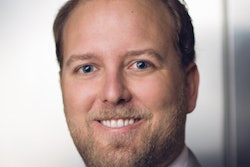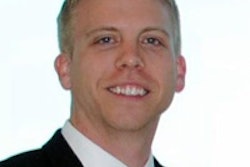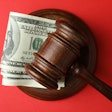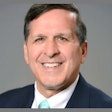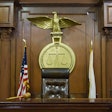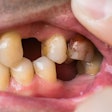
In part 1 of this series, Matthew Odgers, JD, discussed 10 important phrases that are contained in your office lease. In part 2, he describes different kind of leases you may encounter.
The costs of leasing space include more than just rent. Commercial tenants often incur the taxes, maintenance, and insurance costs on their own space and a portion of the common areas. Terms such as "gross lease," "full-service lease," "net lease," or "pass-through lease" each refer to different monetary arrangements in which you may be billed for additional costs over and above rent. However, maintenance and janitorial costs are usually part of the overall expense of a lease.
 Matthew Odgers, JD.
Matthew Odgers, JD.Full-service or office gross lease
In a full-service lease (also known as a gross lease), the rent will cover all expenses and there will be no additional fees. The rent will include all taxes, maintenance, insurance, and usually janitorial services.
When negotiating a gross lease, the tenant dentist should request that the lease specifically includes which janitorial services are offered and how often they will be provided. In addition, before entering into the lease, the tenant dentist should determine if any additional fees will be incurred for excess utility consumption.
Net leases
Under a net lease, the tenant (the dentist) will pay a lower base rent for the dental office. However, the tenant is required to pay some or all of the expenses associated with the maintenance and operation of the building. These expenses sometimes include the landlord's property insurance, common area maintenance (CAMS) fees, and real estate taxes on the building and property. The common area maintenance fees often include the property management fees, sewage, trash, maintaining fire sprinklers, janitorial services, and more.
Modified gross net lease
Gross leases tend to be more tenant-friendly, while net leases can be more landlord-friendly. A fair compromise when leasing a dental office is a modified gross lease or a modified net lease (both terms are used).
Under a modified gross lease, a tenant dentist will pay a base rent plus a proportional share of some of the additional costs associated with the property. The landlord and the tenant negotiate what those costs will be and may negotiate a set rate per year. This can help the tenant dentist with budgeting for yearly expenses. However, if the actual costs end up being lower, the tenant will be overpaying.
3 net lease examples
1. Single-net lease
Under a single net lease (known as an N lease), the tenant dentist pays a base rent along with a pro-rata share of the property tax and 100% of their own utilities and janitorial services. The landlord covers all of the other building expenses.
2. Double-net lease
Under a double net lease (known as an NN lease), the tenant dentist is responsible for base rent along with a pro-rata share of property insurance and property taxes. The tenant dentist is also responsible for all utility and janitorial expenses, as in an N lease. However, under a double-net lease the landlord will also cover all expenses for structural repairs and the above-mentioned CAMS.
3. Triple-net lease
“The triple-net lease is the most common form of a lease for a free-standing office or a retail space office.”
The triple-net lease (an NNN or net-net-net lease) is the most common form of a lease for a free-standing office or a retail space office. It is called a triple-net lease because, in addition to the base rent, the tenant dentists will pay part or all of the three net expenses (common area maintenance [CAM], property insurance, and property taxes). As with the single- and double-net leases, tenant dentists under a triple-net lease pays their own utilities.
In a triple-net lease, a landlord will estimate the NNN expenses and charge the tenant dentists their proportionate share. For example, if a tenant dentist were to lease a 2,500-sq-ft office in a building that is 10,000 sq ft in size, the dentist would be required to pay 25% of the building's CAM charges, property taxes, and building insurance.
The base monthly rent under these leases is usually lower than the other net leases because of the additional expenses. However, these leases also tend to be more landlord-friendly in my experience, so I recommend working with an experienced attorney to negotiate caps on the NNN fees that can be charged annually.
| Types of leases | ||
| Lease type | Dentist (tenant) pays | Landlord pays |
| Full-service | Lump-sum rent | Building taxes, building maintenance, building insurance, janitorial services |
| Single-net | Base rent, pro-rata share of property tax, all of the tenant's own utilities | Building maintenance, building insurance |
| Double-net | Base rent, pro-rata share of property tax, pro-rata share of property insurance, all of the tenant's own utilities | Building maintenance |
| Triple-net (NNN) | Base rent, pro-rata share of property tax, pro-rata share of property insurance, pro-rata share of CAM charges, all of the tenant's own utilities | NA |
| Modified gross | Base rent, negotiated pro-rata share of property tax, negotiated pro-rata share of property insurance, negotiated pro-rata share of CAM charges, all of the tenant's own utilities | Negotiated pro-rata share of property tax, negotiated pro-rata share of property insurance, negotiated pro-rata share of CAM charges |
Attorney Matthew Odgers, JD, is the owner and founder of Odgers Law Group, a firm based in San Diego. He can be reached by email at [email protected].
The comments and observations expressed herein do not necessarily reflect the opinions of DrBicuspid.com, nor should they be construed as an endorsement or admonishment of any particular idea, vendor, or organization.




